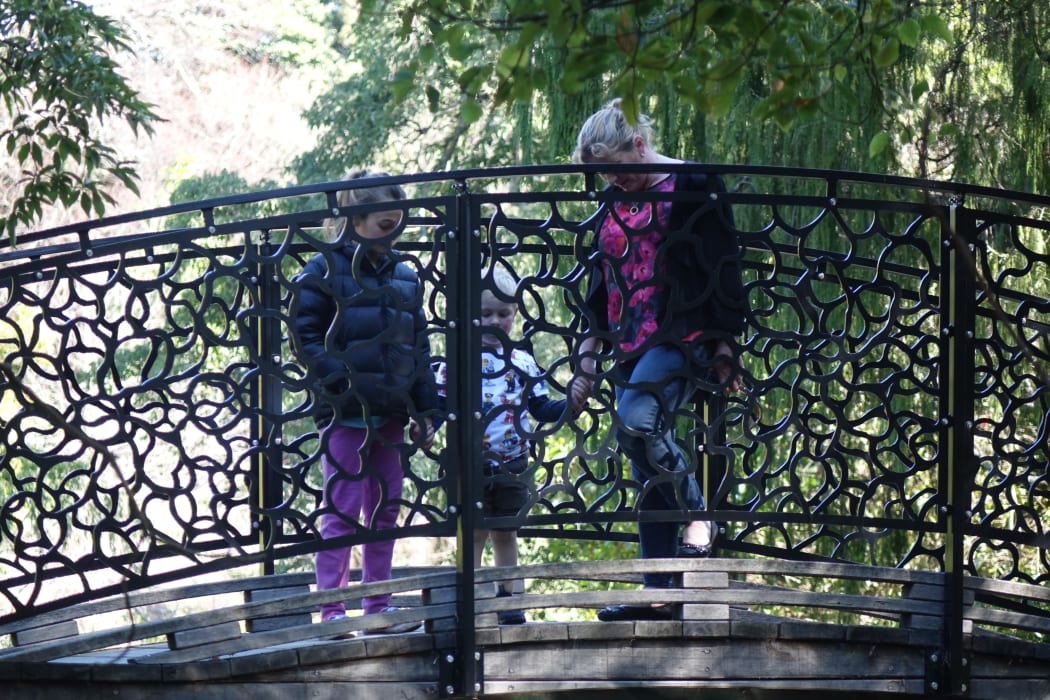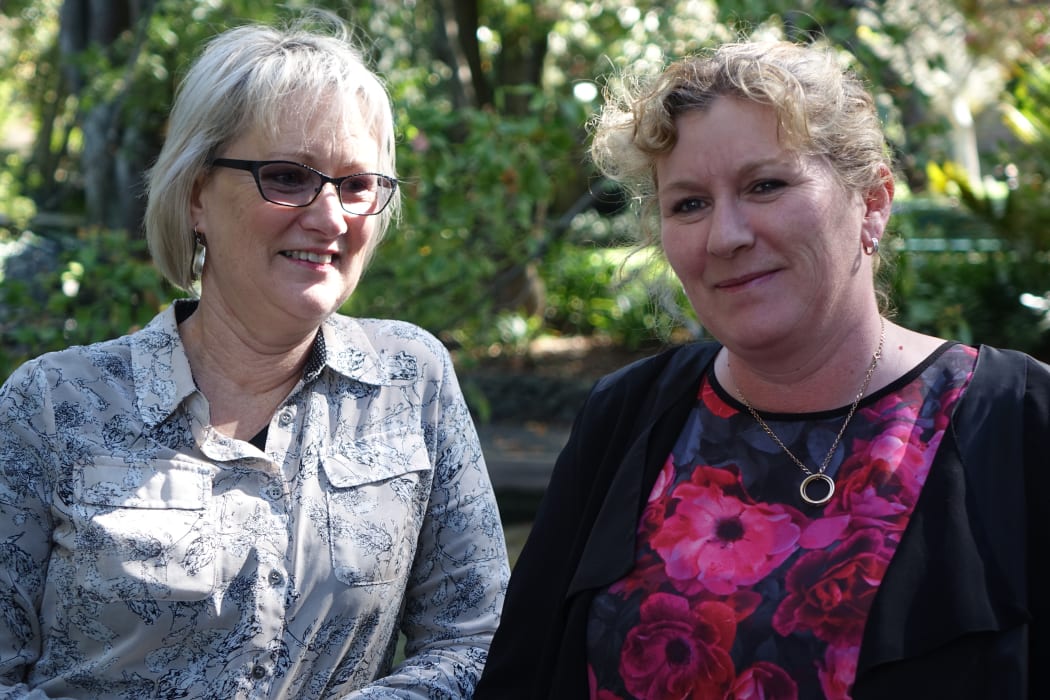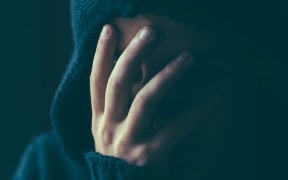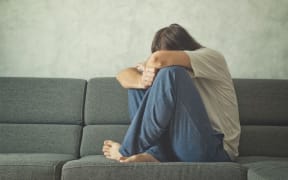A Nelson woman who disputed a coroner's finding that troubles in her marriage were to blame for her husband's suspected suicide has pushed for an inquest so problems she claimed with the mental health service can be aired in public.

Diane Hall with grandchildren Shontay and Riley, enjoy some quiet times together. Photo: Tracy Neal/ RNZ
Diane Hall said almost a year after her husband took his own life she is still treading water, and fighting for the right to be heard.
She said recent moves by the Government to better address issues around New Zealand's suicide rate is a step in the right direction, but more support was needed for families and friends left grieving, often in silence.
Health Minister Jonathan Coleman announced earlier this month that following a review of services, health boards have now fine-tuned suicide prevention plans. A current review of the Coroners Act may lead to a loosening of restrictions around how suicide is reported.
Ministry of Justice figures showed that in the year to August 2014, 529 people took their own lives, which was 200 more than the number killed on our roads so far this year according to NZTA figures.
Mrs Hall's claims that depression was prevalent among those dealing with suicide is supported by the Mental Health Foundation.
The Foundation's director of programme design and delivery Moira Clunie said more discussion was needed on suicide prevention, and support for people enduring loss from suicide.
"A death from suicide is a sudden, shocking thing and people are often left with questions that are impossible to answer. It's also complex dealing with this type of grief.
"People tend to blame themselves, or feel ashamed - they can even start to feel suicidal themselves."
Mrs Hall said while she had coped with a lot of tragedy in her life, including the early loss of her mother and then a brother, coping with loss from suicide was "quite different and really traumatic".
"There's a lot of guilt, anger, and just terrible, terrible sadness. I see myself as a changed person now - I don't think I'll ever be the same person."
Mrs Hall did not accept the findings of an inquiry into her husband's death, and with the help of her MP Nick Smith she has exercised her right to ask for a coroner's inquest in the hope of getting clearer answers. She claimed that problems in their relationship were a symptom of a much wider problem with the mental illness her late husband fought for a long time.
Dr Smith said while there have been improvements in public health services available to those needing crisis intervention, there was still a way to go in providing support for family members.
"Where I think we can go further, and certainly where I've intervened in this particular constituency case, is where there are circumstances of which there needs to be learnings, and also to support those family members that are so traumatised by the loss of loved ones," he said.

Gaile Noonan (left) and Diane Hall say more help is needed for those grieving after a suicide. Photo: Tracy Neal/ RNZ
Mrs Hall said it was hard to know where to turn in the immediate aftermath of her husband's death . A lifeline was Victim Support, and in finding and connecting with others who had been through the same, such as Nelson city councillor Gaile Noonan, who lost her husband Peter nine years ago.
Mrs Noonan said support networks for families were missing from the resources available.
"Because it's not talked about much you think few people suicide, but that's not right. A lot do and a lot try. It's just so sad because they're good people going through a moment in time struggling with day to day living. I think if we're all more supportive of mental health issues we could make a difference, but because we're not talking about it we're losing people," Mrs Noonan said.
Mrs Hall said the silence around suicide enhanced the sense that people simply vanished after they died, and perpetuated the shame felt by those left.
"That's been the hardest. It's the shame - like it's something to be ashamed of, like mental illness is too. The whole pathway to suicide is shameful in New Zealand. I've had people cross the street or act like they haven't seen me, because they don't know what to say."
Mrs Hall and Mrs Noonan were now keen to set up a formal support group in Nelson, but agreed it needed to be approached in the right way.
Mrs Noonan said it was all very well for those who had been through the experience to catch up, but a more skilled approach was needed.
The Mental Health Foundation of New Zealand has just launched a new resource, Support Groups for Suicide Loss: a handbook for Aotearoa New Zealand, specifically for those wanting to know how to set up and run a support group in a safe and effective way.
*Information on suicide bereavement
*Support Groups for Suicide Loss: a handbook for Aotearoa New Zealand




